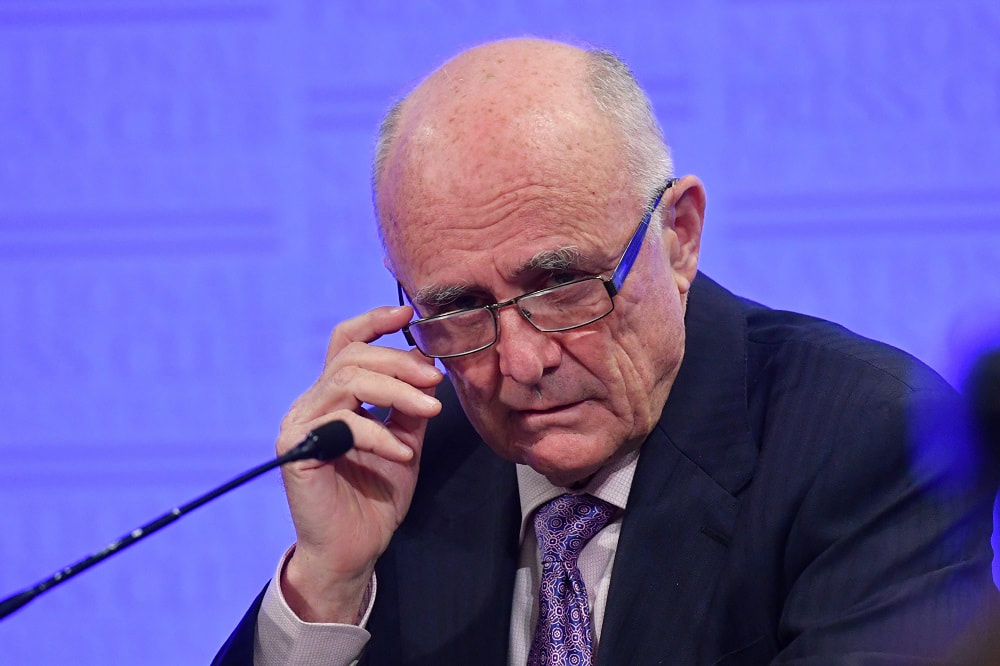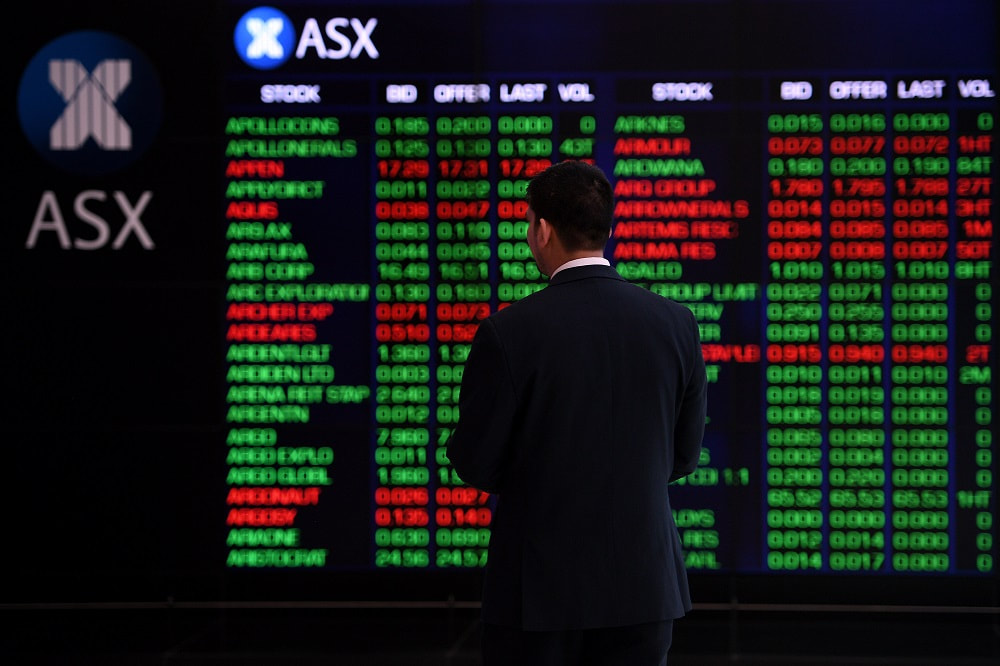|
The big banks got off lightly from the financial services royal commission despite the NAB CEO and chair being offered up as "sacrifices and scapegoats", a competition expert says.
Former Australian Competition and Consumer Commission chairman Allan Fels says there has been a powerful exposure of and condemnation of misconduct from the inquiry. But the economist and lawyer believes the royal commission has not done as well in tackling difficult policy problems. "I thought the banks got off lightly," Professor Fels told the Melbourne Press Club on Friday. "I thought it didn't get deeply enough into a number of important things." Prof Fels argued the issue of structural separation - where institutions provide advice and make the financial products they sell - needed a much deeper look. Royal commissioner Kenneth Hayne QC decided it was not necessary to mandate structural separation between product and advice. Prof Fels also said Mr Hayne did not get to the bottom of questions about remuneration in the sector and did not "come up with anything much" in the area of remediation for customers. "I was a bit disappointed with the recommendations," he said. Prof Fels said a lot of the recommendations were aimed at "smaller fry" such as mortgage brokers and commission agents. "The big banks got off with a few sacrifices. A chairman and a CEO have been offered up as sacrifices and scapegoats," he said. National Australia Bank's CEO Andrew Thorburn and chairman Ken Henry resigned after Mr Hayne's final report expressed serious concerns about their leadership. Prof Fels said a number of difficult policy problems required a lot more thought, time and consideration - including Mr Hayne's call for a move to a borrower-pays system for mortgage brokers. The Australian share market has finished higher for a third day, hitting its highest level in five months.
The benchmark S&P/ASX200 index closed up 23.7 points, or 0.38 per cent, at 6,192.7 points at 1615 AEDT on Friday, while the broader All Ordinaries was up 21.1 points, or 0.34 per cent, at 6,273.8. It's the ASX200's best level since late September. In the last 11 sessions, it has only been down twice, with the index finishing the week up 0.41 per cent. "Today's been a positive session, we've got a bit of a lull in market news, following of course the end of reporting season on Thursday," said CommSec market analyst James Tao. Most sectors were higher led by property trusts, then tech stocks. Energy, materials and industrial stocks were down. BHP was down 0.13 per cent, Rio Tinto down 1.29 per cent and Fortescue Metals down 1.32 per cent. Woodside Petroleum and Oil Search declined 1.63 per cent and 1.91 per cent, respectively. Afterpay, meanwhile, was up 6.13 per cent, at $19.57. The buy now, pay later company, which reported earnings on Tuesday, finished up 13.78 per cent on the week following some big swings. Bellamy's was up 8.34 per cent, to $8.83, with shares of the infant formula maker rebounding following Wednesday's disappointing earnings results. A number of stocks went ex-dividend, most notably Caltex, which closed down 4.83 per cent, and Origin Energy, down 1.09 per cent. Retail Food Group was down 7.41 per cent after revealing on Thursday that it had slumped to an $111 million first-half loss. Unibail-Rodamco-Westfield was up 1.07 per cent after announcing it had sold its 34 per cent stake in Helsinki's Jumbo centre. The big banks edged higher, led by CBA, up 0.54 per cent. Since its Christmas Eve low of 5,410.2, the ASX200 has gained 14.4 per cent, amid a similar rally by other global indices. Chris Weston, head of research at Pepperstone in Melbourne, said central banks were responsible for the rally after institutions like the US Federal Reserve laid out all the stimulus tools at its disposal, such as quantitative easing and negative interest rates. The Reserve Bank of Australia has also moved to a neutral stance and it appears the European Central Bank may soon re-launch its offer of long-term loans to banks. "There's been a concentrated alignment among central banks to ease economic conditions," which has reduced volatility, Mr Weston said. "When volatility is low, people just go out and buy stocks," he said. "Basically, central banks have said to equities traders, we've got your back." The Aussie dollar is buying 70.92 US cents, from 71.44 US cents on Thursday. ON THE ASX: * The benchmark S&P/ASX200 index was up 23.7 points, or 0.38 per cent, at 6,192.7 points at 1630 AEDT on Friday. * The All Ordinaries was up 21.1 points, or 0.34 per cent, at 6,273.8. * At 1630 AEDT, the SPI200 futures index was down 2 points, to 6190. CURRENCY SNAPSHOT AT 1630 AEDT: One Australian dollar buys: * 70.92 US cents, from 70.94 US on Thursday * 79.23 Japanese yen, from 79.12 * 62.36 euro cents, from 62.40 * 53.48 British pence, from 53.50 * 104.04 NZ cents, from 104.18 GOLD: The spot price of gold in Sydney at 1630 AEDT was $US1312.77 per fine ounce, from $US1313.25 on Thursday. |
Archives
June 2019
Categories |


 RSS Feed
RSS Feed